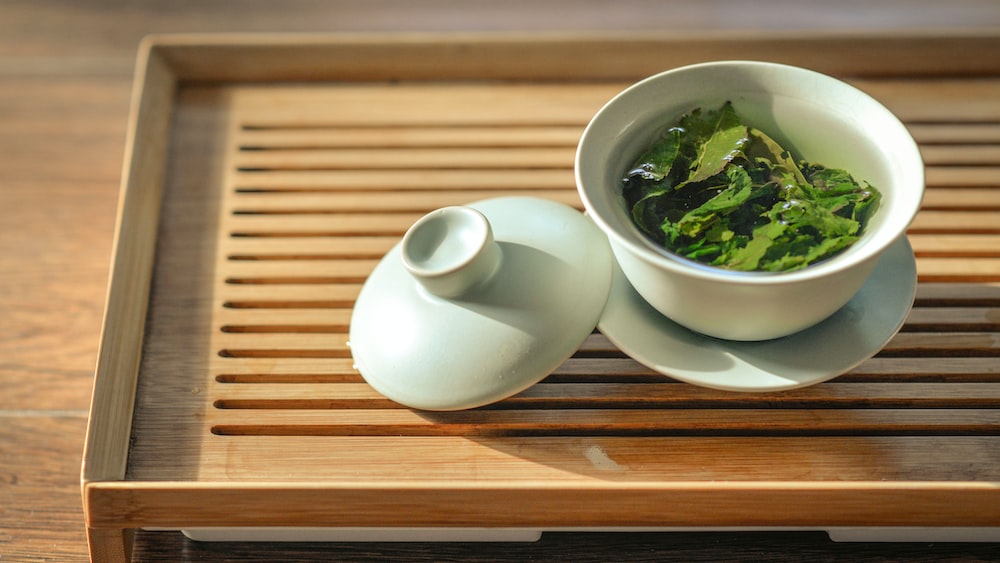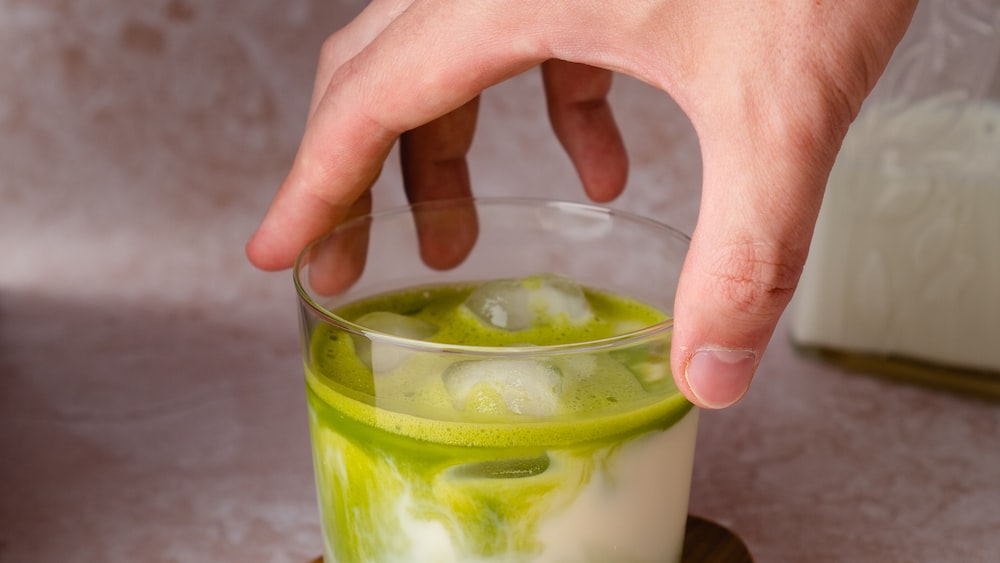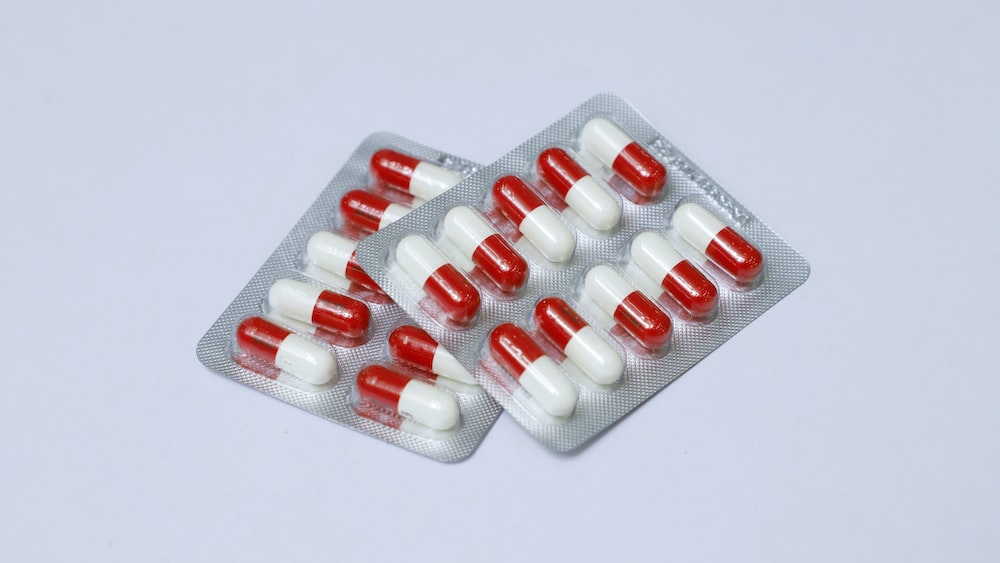Green Tea Vitamin K: The Surprising Truth You Need To Know

Green Tea Vitamin K: The Surprising Truth You Need To Know
Welcome, tea lovers, and health foodies alike! Do you ever wonder what’s in every sip when you’re chilling with your cup of green tea? Do you think about the vitamins, the minerals, the hints of sunshine, and maybe even the hushed whispers of wisdom from tea leaves long steeped in health-enhancing goodness? Well, let’s find out!
Set your kettles aside for a moment as we embark on an informational adventure through this liquid gem. Headfirst, we’ll dive into a stirring consommé of health facts, specifically focusing on the surprising connection between green tea and something our bodies crave – Vitamin K.
Tea is known to be chock full of antioxidants, but does it also rustle up a Vitamin K party in your cup? And should we paint the town green with this newfound knowledge? Or tread caution’s tighterrope? Roll up your sleeve, for we have some scientific tea leaves to read!
Understanding Green Tea and Vitamin K
Before we turn over this gastronomical mystery card, let’s first make sure we’re up to speed on our subjects: green tea and Vitamin K. Yes, they could be separate chapters in “The Encyclo-tea-dia of Health” (which, by the way, I’m considering penning down someday). But here, together, we’ll explore their singular magnificence and their intersection.
What is Green Tea?
Grab that teacup and listen closely. Every sip whispers a story of an unoxidized leaf that has youthfully retained its greenness and goodness since we picked it off a shrub’s tea arms. Truly, green tea is the less-processed sibling in the tea leaves family, being simply withered and steamed to prevent oxidation and preserve color, aroma, and beneficial compounds.
Ali the Antioxidant, Charlie the Catechin, and Frankie the Flavonoid – they all love hitching a ride with the green tea convoy. It’s no surprise that our leafy hero, being unfermented and minimally processed, is bursting at the seams with these health-boosting compounds.
So, what we’ve got here is a greenish superhero. It’s a caped crusader in the world of beverages, working tirelessly to scout, recruit, and sustain an army of beneficial compounds, all inside one seemingly average mug.

Green tea is the less-processed sibling in the tea leaves family, being simply withered and steamed to prevent oxidation and preserve color, aroma, and beneficial compounds.
What is Vitamin K?
Next, allow me to introduce Vitamin K, scrupulously called “The Clotmaster.” It’s like the backroom band manager ensuring that our blood performers won’t leave us concert-goers in a lurch. That’s right! Vitamin K plays a pivotal role in facilitating blood clotting and maintaining bone health.
Be warned, though, this vitamin moonlights as a fat-soluble diva, choosing to hang out in select green-leafed groupies like spinach and kale. But can we find it swirling in a cup of green tea? Hold onto your teacups, folks, we’re steeping in these waters next!
The Connection Between Green Tea and Vitamin K
Now that we’re all chums, let’s explore the rendezvous point of green tea and Vitamin K. Does our beloved cup of greenness cohabitate with The Clotmaster? Or is it just a rumor spun in the mill of internet musings? Let’s steep deeper into this bubbling brew.
Vitamin K Content in Green Tea
A quick peek into the “Official Gazette of Vitamin K Census_” reveals that green tea isn’t really on the Vitamin K elite list. You won’t find it waltzing around with the high Vitamin K crowd. In fact, according to a 2014 study by the USDA, one standard cup of green tea provides very minimal Vitamin K – about 0.03 micrograms to be precise.
Sure, our green hero might not be stuffing itself with Vitamin K, but that’s no reason to exile it from our daily routines. The low Vitamin K content has a silver lining, especially for those on blood-thinners or warfarin, where a Vitamin K surplus might look like an unwelcome guest crashing a perfectly balanced party.
So, if you’re on the hunt for Vitamin K, you might want to look beyond the green horizon – in broccoli forests and spinach jungles. But if it’s a delicate balance you seek, our green friend might just be your evening’s VIP.
How Green Tea May Affect Vitamin K Absorption
While the Vitamin K content in green tea isn’t so noteworthy, the tea’s superhero properties may extend to affecting the absorption of Vitamin K from other sources. How so? Well, think of it as the Hulk – initially meek, but potentially interfering when things get serious – let’s say, for example, with your warfarin therapy.
Green tea contains a high concentration of catechins (remember Charlie?). These useful compounds might affect Vitamin K absorption, thereby potentially interfering with blood-thinning medication. It emphasizes the balance between reaping green tea’s benefits and oversteeping into potential health risks due to its interference with Vitamin K’s role in your body.
Is this a friend turned foe scenario? Or is there a way to keep our green companion and maintain Vitamin K harmony? Hang onto your tea strainers, brew buddies. We’re about to find out!
Green Tea and Warfarin: A Special Consideration
If you, like so many, are walking a step to warfarin’s beat, green tea considerations might be worth brewing over. No need to toss out your teapot just yet. Come, let’s pour some thought into this delicate intersection of green tea, Vitamin K, and warfarin.
The Role of Vitamin K in Warfarin Therapy
Ever wondered why your doctor winked when she prescribed you warfarin? Here’s the juicy gossip straight from the healthcare community: Vitamin K, akin to a strict dance master, conducts the rhythmic movement of blood clotting in our bodies. When you’re prancing around fairly unscathed, without nasty blood clots threatening to ruin your groove, Vitamin K is the one to thank. But here’s the kicker: warfarin’s job is to tiny-tail-tweak this dance, and it does this by counteracting Vitamin K’s effect.
- Vitamin K: The goody two-shoes keeping everything in balance.
- Warfarin: The sneaky interloper mingling with Vitamin K.
Say a toast goes awry, and you’ve got a cut. Vitamin K kicks into action, prompting clotting factors in your blood to seize the day, clump together – what we professionals call ‘clot’ – and stop the bleeding. In instances where there may be too much clotting – like in strokes and heart attacks – warfarin, the veritable party pooper, throws a damp blanket on the ride by hindering Vitamin K’s performance.
How Green Tea May Interact with Warfarin
Pop quiz: Can one sip a cup of green tea while they’re on warfarin? Well, sit back, dear reader, because we’re wading into murky waters. Our favorite cuppa has been chilling with a gang known as Vitamin K – remember our dance choreographer from earlier? So, when we ingest green tea while on warfarin, we start a veritable tango with unpredictable consequences.
Research advancements have warned us that the Vitamin K present in green tea could potentially reverse the effect of warfarin, turning our essential morning habit into a potential twister in our warfarin therapy. You’re essentially inviting the band conductor (Vitamin K) back onto the floor whilst the party-pooper (warfarin) is trying to DJ. Awkward, right?

You see, as Vitamin K attempts to put the clotting routine back in motion, its interaction with warfarin could throw a spanner in the works, leading to, well, anywhere from a harmless Charleston to a lethal Salsa. But enough with the dance metaphors – let’s get down to brass tacks in our next section.
Health Benefits and Risks of Green Tea and Vitamin K
Let’s talk about the yin and the yang of this. Green tea is like that friend who always brings exciting news to the dinner table, while Vitamin K is the sensible one, ensuring things don’t get too rowdy. Both have their perks, but also their fair share of pitfalls, especially when their effects intertwine, or tangle, in surprising ways.
Health Benefits of Green Tea
Green tea is the poster child of wellness, from aiding weight loss to battling bad breath – there’s no terrain left untouched. First, let’s start with its antioxidant properties. Imagine our bodies are forests, and toxins are pesky porcupines causing havoc. Green tea’s antioxidants are the park rangers, whacking away these disrupting critters!
Not enough to tempt you? Well, some findings suggest that a cup of green tea a day could keep the dentist away! Green tea may battle tooth decay and combat bad breath – bad news for mouthwash, but great news for us!
Green tea’s antioxidants act as park rangers, protecting our bodies from toxins like pesky porcupines, while also potentially improving dental health and fighting bad breath.
Health Benefits of Vitamin K
On the flipside, our humble Vitamin K rarely basks in the limelight, even though it holds the reins on such a vital function – blood clotting. This unsung hero doesn’t stop there; research advancements have discovered its potential in ensuring bone health and protecting your heart.
In our bodily theater, Vitamin K ensures the choreography of blood clotting runs smoothly, preventing excessive bleeding during injuries. It also moonlights as a caretaker, playing a significant role in bone metabolism and regulating blood calcium levels.
In addition to these roles, it might act as a guardian against heart diseases. So, while Vitamin K might not be scoring a ten for a fancy tango, it’s certainly nailing a perfect score worryingly often in its day job.
Potential Risks and Side Effects
Well, like any good story, there’s always a villain lurking. And while we’ve talked up green tea and Vitamin K, there can be potential side effects if overconsumed – or worse, if they interact.
For instance, too much green tea can lead to insomnia, gastric problems, iron deficiency, or even pose risks for those with liver conditions. A cup or two a day? Healthy. A dozen cups in quick succession? Um, not so much.
In the Vitamin K department, while deficiency is rare, an excess could thicken your blood too much, leading to clots where clots shouldn’t be – it’s like having a party planner who’s too enthusiastic, stuffing your living room with too many guests until you can’t breathe!
And the pièce de résistance of risks? The interaction between green tea and warfarin due to Vitamin K – an unhealthy competition that could culminate in dangerous blood clots, casting a gruesome cloud on an otherwise sunny tea party.
Practical Tips for Consuming Green Tea and Vitamin K
Now that we’ve navigated the rugged territory of Vitamin K, green tea, and their merry dance with warfarin, let’s talk about how to smoothly sail these waters without tipping the boat.

Recommended Daily Intake of Vitamin K
Deciding how much Vitamin K to consume isn’t like deciding how much whipped cream to put on your sundae – it holds a bit more weight in the balance of things. Experts recommend that men aim for about 120 micrograms daily, while women should aim for 90 micrograms.
Of course, this needs to be tailored by your doctor to suit your individual health roadmap. And don’t overdo it! Like putting hot sauce on a breakfast burrito, the key is knowing how much is just enough to add spice without scorching your health.
How to Safely Incorporate Green Tea into Your Diet
Oh, the tantalizing dance of the tea leaves! Inciting the world to fall in love with tea, and particularly green tea, has changed many dietary regimes. But like any new suitor, it’s good to know what you’re getting into.
Firstly, moderation, darling, is the quintessential dance partner of the tea enthusiast. We often hear health experts echo the adage, “too much of a good thing can be bad.” So, limit your green tea intake to 3-4 cups a day. But is it just about counting cups? No-siree!
Mind your brewing time too. A minute too long and you might end up with excess tannins that can affect your iron absorption negatively. Furthermore, some brave folks out there might be contemplating a green tea detox, be cautious. Long-term use of green tea supplements or detox could have an impact on your liver. Lastly, don’t forget to check the label for any extra ingredients that don’t gel with your body’s unique rhythm.
FAQs
In the wondrous world of tea, it’s not uncommon to find a few wrinkles of confusion. Not to fret, I’ll iron a few out as we dance through these frequently asked questions.
1. Can I drink green tea while taking warfarin?
Can you drink green tea while on warfarin? This is a question whispered in the corridors of clinics and tea parlors alike. While green tea is rich in antioxidants and provides numerous health benefits, it’s important to note its interaction with certain medications like warfarin. Several data suggest that it can affect the effectiveness of the drug. So consult your doctor before twirling with green tea while on warfarin.
2. How much vitamin K is in a cup of green tea?
How much vitamin K is in green tea? The very question indicates your expertise shining through. An average cup of green tea contains about 0.03 micrograms of Vitamin K, which is quite less compared to other vitamin K rich foods.
3. Does green tea inhibit the absorption of vitamin K?
Does green tea inhibit the absorption of vitamin K? Now, there’s a query that requires a more nuanced answer. Yes, certain compounds in green tea known as catechins may interfere with the absorption of vitamin K. However, this is more likely when the green tea consumption is at an excessively high dose. A few cups a day won’t put a damper on your vitamin K absorption dance.
4. What are the health benefits of green tea and vitamin K?
Curious about the health benefits of green tea and vitamin K? Well, these two make for an interesting alliance. Green tea, a potent source of antioxidants, has been linked with lower risks of heart disease, cancer, and improved brain function. Vitamin K, on the other hand, is crucial for blood clotting and bone health.

Conclusion
Reflecting upon our dance through the Bosphorus of tea leaves, and the whirling dervishes of health benefits they offer, it’s evident that green tea is a substantial wellspring of health, deserving of the adulation it enjoys around the globe.
Delving into the realms of vitamin K and understanding the connection with green tea has been quite the whirlwind waltz, wouldn’t you agree? From the nuances of safe consumption to its interaction with medications, what we have unearthed, and with your continued expertise, is an enduring perspective on this remarkable green elixir.
And now, as we lightly tread into ‘last dance’ territory, I encourage you to think of these insights as guideposts on your wellness journey. Remember, your health dance floor ought to be customized to your unique rhythm. So sip, research, question and most importantly, enjoy! Cheers to health, happiness and the joy of dancing!
Fare thee well, dear reader, until we meet again over a cup of tea. Stay safe. Stay healthy.
-Zoe.






